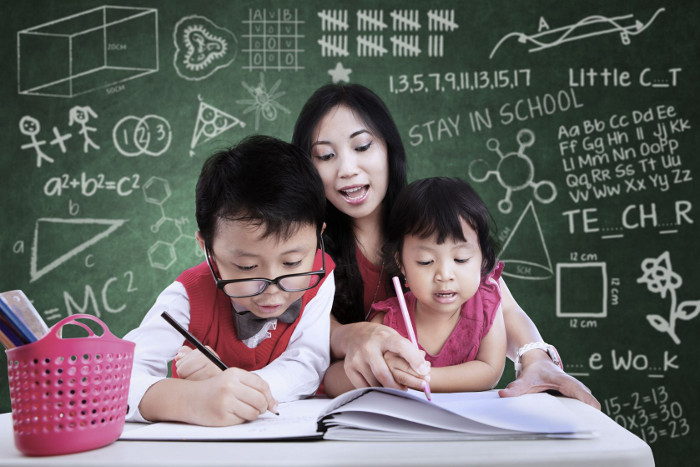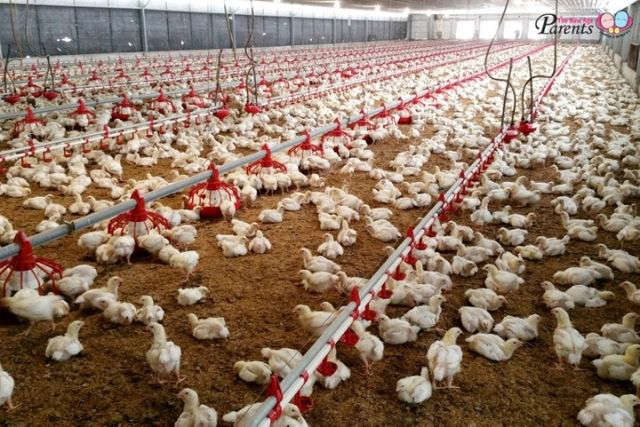Although homeschooling is a path most people generally disapprove of, an increasing number of parents are finding the advantages compelling enough to choose it.

Pros and Cons of Homeschooling: Pros
- You can customize your child’s education to his or her unique learning styles, needs and interests. Homeschooled children learn at their own pace and enjoy individualized attention not possible in formal school settings. Indoors or outdoors, textbooks or excursions, solo or in a group, structured or unstructured timetables — there are numerous options for designing a learning environment that works best for your child.
- One-to-one teaching is efficient. More can be covered in less time, so in this way learning is accelerated.
- It provides for a portable education system – a huge plus for families who travel often, or move a lot.
- You can design a schedule to fit your families; preferences and natural rhythms. Life is not ordered around homework, school hours or exams. Homeschooled children tend to get more rest, more opportunities for physical exercise, and eat better. Family bonding gets a boost, too, as siblings play together more often and the entire family gets more ‘together’ time.
- You can spend more time with your child, and witness firsthand their discoveries and learning milestones. Often the homeschooling parent also learns together with the child, a bonding and enriching experience all its own.
- More time together means more opportunities to instill values that are priorities for your family. Many parents choose to homeschool because it enables them to go deeper in cultivating the character and spiritual life of their children.
- Contrary to popular belief, homeschooled children do get socialization. Regular social events, group sports activities, homeschool concerts, and co-ops (where a group of parents collaborate on weekly group lessons centered on a particular subject, e.g. science, or math) are among the many possibilities.
- Not only do the children get to learn together and collaborate with peers, like their school-going contemporaries do, but they also encounter people of other ages and varying backgrounds as a way of life. As a result, they are often comfortable in a wide variety of social settings and able to hold their own in a conversation with just about anyone, peer or otherwise.
- Homeschooled children tend to become self-directed learners. They often grow to be very independent, curious about their world, unafraid to take risks. They get to explore a broader range of subjects than their school-going peers, and often collaborate with their parents on their educational direction. This sets them up to have better clarity on their vocational preferences when it’s time to pursue their university education or careers.
There are, of course, drawbacks and they are not insignificant. Here are just a handful.
Pros and Cons of Homeschooling: Cons

- It’s a full-time job. It takes a similar amount of time and energy to provide an education for your child. Juggling homeschool and home care can be tough. It may take some experience and time to figure out strategies and routines which enable you to be effective and which are sustainable for the long-term.
- The homeschooling mother often has little time to herself when the children are younger, and particularly if there is no extra help (grandparents, relatives, helper), or if the husband frequently travels or works overtime.
- Socialization, or rather the lack thereof, is a widely-held concern. Some common pitfalls include diminished contact and experience interacting and collaborating with peers. Sometimes socialization relies heavily on the parent, i.e. the child socializes only when and with whom the parent socializes with. Many homeschoolers differ with public opinion, asserting that quality socialization is achievable in a homeschooling context, but it does take effort and resourcefulness to provide it for your child.
- Preparing your child for the PSLE can be especially daunting because the passing benchmark for homeschool students is much higher than for students in national schools. Often, the homeschool syllabus has to be interrupted during that year so the child can focus on material that specifically prepares them for the format and expectations of the PSLE.
- Your family needs to live on a single income as one parent is required by MOE to stay at home as the primary educator.
- Homeschooling may be expensive, especially if the child pursues interests such as music, horse-riding, or gymnastics which require significant outlay of money. Parents who prefer to use pre-packaged curriculums will find these do not come cheaply. Art materials, stationery and other supplies and resources also add up.
- Homeschool students are excluded from the placement exercise for national secondary schools. Should they decide to switch to a national secondary school after passing the PSLE, they will have to apply directly to the schools and the choices are limited to spaces ‘leftover’ after mainstream students have been placed.
By Sara Rognstad
Homeschool Series:
Part 1: Should You Homeschool In Singapore?
Part 2: Homeschooling In Singapore
Part 3: Is Homeschooling For You And Your Child?
Part 5: Resources For Homeschool Parents
Part 6: Useful Tips For The New Homeschooling Mum
Part 7: Methods Of Homeschooling
Part 8: Why Do Parents Homeschool
Part 9: Homeschooling Mums In Singapore
Part 10: Important Homeschooling Principles To Note
Part 11: How to Apply For MOE Approval
If you find this article useful, do click Like and Share at the bottom of the post, thank you.
Want more comprehensive info? Check out our e-guides here.

























































Leave a Comment: